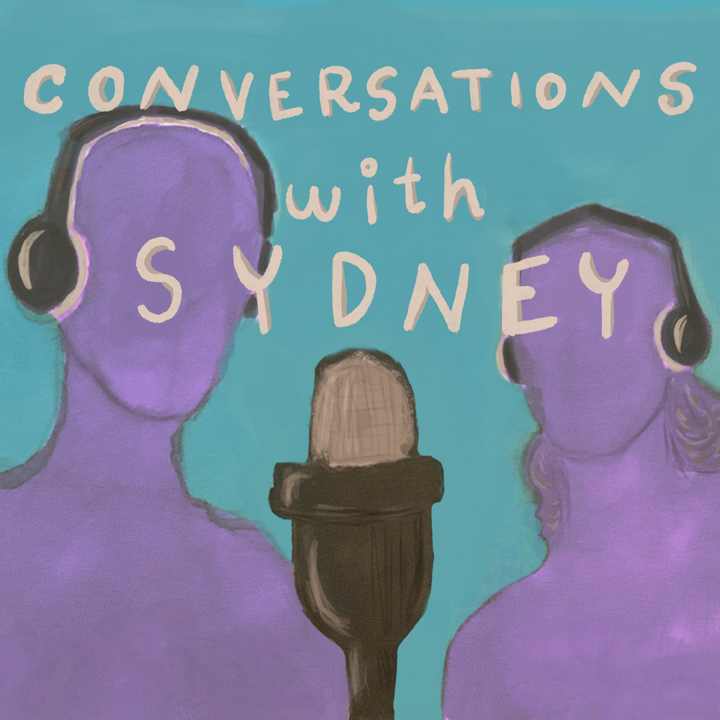PODCASTS
CONVERSATIONS WITH SYDNEY is a solutions-oriented podcast series exploring effective ways for parents, teens, schools, and communities to respond to the ongoing crises of teen mental health and suicide. Each episode is framed as an intimate conversation between a father (Micah) and his non-binary teenager (Sydney) as they search for real-world solutions by speaking with parents, doctors, and national leaders in the field of teen suicide prevention.
Cohosts: Micah and Sydney Fink
Producer and Editor: Micah Fink
You may listen to the series below or also on Apple Podcasts
Delighted to share that “Conversations with Sydney” won two Signal Awards, honoring the best new work in podcasting.
The series garnered a silver medal for Best Indy Podcast and a second silver medal for Best Co-Host Team.
Episode 1: Should I Talk to My Teen About Suicide?
This podcast episode discusses themes of suicide and self-harm that may be upsetting to some listeners.
Teen suicide is real and impacting young people in all of our communities. Twenty-two percent of all high school students seriously considered suicide in 2021, according to the CDC. This initial episode asks, can talking about suicide with your children be dangerous? Tracy Klingener, Director of Suicide Prevention at the Mental Health Association, debunks this myth by explaining why parents should talk to their kids about suicide.
Episode 2: Talking to Teens About Suicide
This podcast episode discusses themes of suicide and self-harm that may be upsetting to some listeners.
Teens are already talking about suicide – they just might not be talking to you. One out of every five high school students in the United States seriously considered suicide in 2021, according to the CDC, and more than half of our country’s female students experienced persistent feelings of sadness or hopelessness. In this episode we speak with Dr. Laura Erickson-Schroth, Chief Medical Officer at the Jed Foundation, about starting a conversation with your teen and some ways to respond if your child says they are thinking about suicide.
Episode 3: How the New 988 Hotline Works
This podcast episode discusses themes of suicide and self-harm that may be upsetting to some listeners.
Fifty years ago, most people believed that you could not prevent suicide, explains Dr. Madelyn Gould, professor of epidemiology in psychiatry at Columbia University. But today, partly because of her ground-breaking research, we know that suicide IS preventable. And one of the most effective crisis responses is the new national 988 hotline. The vast majority of people who call asking for help say that just 20 minutes of conversation, on average, stopped them from killing themselves. Gould explains why and how the 988 hotline is so effective and urges young people (and their parents) to use this resource to keep them safe during a crisis.
Episode 4: The Paradox of Self-Injury
This podcast episode discusses themes of suicide and self-harm that may be upsetting to some listeners.
Self-injury is the deliberate destruction of body tissue – often through cutting or burning. Paradoxically, says Janis Whitlock, director of the Cornell Research Program on Self-Injury and Recovery, this behavior typically emerges from a desire to feel better, not to end one’s life.
This impulse is critical, explains Whitlock, and it can be built upon to find healthier coping mechanisms. The episode also features Rylee Rose, a teen living in northern New Jersey who has struggled with self-injury, explaining her reasons for self-injuring – and how this behavior fit into her larger struggle with mental health.
Two of the most powerful findings of Whitlock’s research are that parental involvement was the single most important factor in a young person’s recovery – and the majority of teens who self-injure say they wish they could talk to an adult about their experiences.
The program is distributed by WBGO Studios, the podcasting arm of WBGO, the Public Radio Station in Newark, New Jersey, and is available for free on Apple Podcasts, Spotify, the NPR app, Amazon Music and Overcast.
CONVERSATIONS WITH SYDNEY was produced with support from the Pulitzer Center on Crisis Reporting, The Rosalynn Carter Fellowships for Mental Health Journalism, and produced in association with WBGO Studios.
Listening guides for educators who would like to use these podcasts in their classrooms are available at pulitzercenter.org/conversationswithsydney
If you or someone you know is struggling or in crisis, help is available. In the United States call or text 988 or chat online at 988lifeline.org


